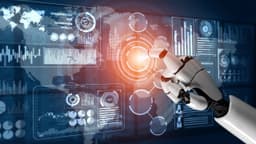University of Maryland Baltimore County
The University of Maryland Baltimore County (UMBC) is a public research university known for its strong focus on science, engineering, information technology, human services, and public policy. Its influence in higher education, especially in the Mid-Atlantic region, is increasingly significant.
A Brief History
Established in 1966 as part of the University System of Maryland, UMBC is located in Catonsville, close to downtown Baltimore and within an hour's drive from Washington, D.C. Initially a commuter school, it has transformed into a vibrant residential university with a diverse student body.
From the start, UMBC aimed for an innovative, inter-disciplinary approach to education, emphasizing research and science. This reputation as an institution dedicated to knowledge advancement has helped it attract diverse students. The campus has expanded from a few buildings to a large facility featuring cutting-edge research centers, modern residence halls, and various cultural and recreational venues.
Academics
UMBC provides a broad range of degree programs across its various colleges and schools. Students can pursue bachelor's, master's, and doctoral degrees in over 100 areas of study. The university is especially known for its strengths in STEM fields: science, technology, engineering, and mathematics.
Undergraduate Education
Undergraduate students can choose from numerous options, including popular majors such as biological sciences, computer science, engineering, psychology, and health administration. UMBC also offers an honors college for high-achieving students, allowing them to engage in advanced curricula and research experiences.
Graduate Programs
Graduate students at UMBC can access multiple master's and doctoral programs. The university is recognized for its research initiatives in public policy, environmental studies, and cybersecurity. Additionally, it offers professional programs in education, social work, and other fields that prepare students for advanced professional practice.
Research and Innovation
Research and innovation are core objectives at UMBC. The campus houses several research centers and institutes, such as the Goddard Earth Sciences Technology and Research Center, Joint Center for Earth Systems Technology, and the Center for Urban Environmental Research and Education. These facilities enable students and faculty to engage in impactful research with global significance.
Rankings
UMBC consistently garners national and international recognition for its educational offerings and research initiatives. It is frequently ranked among the best public universities in the nation. The university's commitment to teaching, innovation, and diversity has earned it accolades, especially for supporting undergraduate teaching and being noted as an "Up-and-Comer" institution.
Specific disciplines like computer science and information systems stand out in rankings, highlighting UMBC as a prominent hub for technology and engineering studies.
Contacting UMBC Admissions
Prospective students can contact the UMBC admissions office in various ways. The team is ready to answer questions, schedule campus visits, and assist with the application process.
Here are the contact details for UMBC's Office of Undergraduate Admissions:
- Phone: 410-455-2292
- Email: [email protected]
- Address: 1000 Hilltop Circle, Baltimore, MD 21250
If you are an international student or interested in graduate admissions, visiting the university's website for specific contact information for these departments is advisable.
Useful Links
To consider UMBC as an academic option or to learn more about its offerings, the following links are available:
- UMBC Homepage: https://www.umbc.edu
- Undergraduate Admissions: https://undergraduate.umbc.edu/
- Graduate School: https://gradschool.umbc.edu/
- Campus Virtual Tour: https://virtualtour.umbc.edu/
- Academic Programs: https://umbc.edu/academics
- Campus News and Events: https://news.umbc.edu/
UMBC is dedicated to education, research, and inclusivity. The university's commitment to innovation, along with its diverse community and variety of academic programs, makes it a key contributor to educational and technological advancements.












